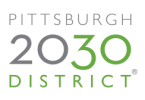Better Mobility for All: Regional Transportation Alliance Releases Vision to Guide Southwestern Pennsylvania’s Transportation Future
Nearly 500 businesses, organizations and other stakeholders engaged in community-driven process to imagine new transportation future for southwestern Pennsylvania
(PITTSBURGH – March 8, 2017) – The status quo is not good enough anymore. That’s the conclusion of a major, 18-month effort to develop a new transportation vision for the 10 counties in southwestern Pennsylvania that comprise the Pittsburgh region.
The Regional Transportation Alliance of Southwestern Pennsylvania (RTA) today released its “from-the- ground-up” vision for the region’s transportation future. Called Imagine Transportation 2.0, the report recommends seven principles to guide the region’s transportation operations and investments into the future, and includes 50 ideas to improve the system, and is being released as an online interactive report that people can use to explore the ideas and offer feedback.
Stakeholders across 10 counties called on to endorse “Seven Principles for a Better Transportation Future”
The RTA is a public-private partnership that was formed in 2015 with representatives from each of the 10 counties in the region and the city of Pittsburgh. It was established with assistance from the Allegheny Conference on Community Development to facilitate an ongoing regional discussion to drive changes to our transportation system that will enhance regional connectivity, competitiveness and quality of life.
“It’s a new day for transportation in southwestern Pennsylvania,” said Brian Heery, RTA co-chair, and CEO, Mitsubishi Electric Power Products. “Over the past 18 months, the 22 public and private sector members of the RTA have engaged in a broad, community-driven prioritization process to develop a shared path forward toward transforming the way our region is connected. As we have seen in other regions across the country that have embarked on transformative transportation initiatives, it will now take new levels of collaboration and active public support to advance this vision. It’s time to get started.”
The Imagine Transportation 2.0 “Seven Principles for a Better Transportation Future” are:
- Principle 1: Optimize our existing assets
- Principle 2: Prioritize connections to jobs and education
- Principle 3: Embrace new operating models
- Principle 4: Make flexible, future-proof investments
- Principle 5: Adopt best management practices
- Principle 6: Support multiple mobility options
- Principle 7: Operate as an integrated system
“The Southwestern Pennsylvania Commission’s long range plan stated that an ‘ongoing regional discussion’ is required if, as a region, we want to make major changes to our transportation system,” said Steve Craig, RTA co-chair and Lawrence County Commissioner. “The goal of the RTA has been to engage a broad, cross-section of diverse users of transportation throughout the region and transportation experts and technologists across the nation to better understand the future we want to see for transportation in the region.”
The process to develop Imagine Transportation 2.0 included collecting input from nearly 500 businesses, organizations and other stakeholders to better understand the transportation challenges and opportunities that people face. Additional discussions with employers and elected officials were held along with sessions with community leaders and transportation futurists from across the nation. Members of the RTA synthesized this combined input over the past 18 months to develop the seven principles and 50 ideas worth exploring to improve the system that resulted in Imagine Transportation 2.0.
“We know that transportation infrastructure is an integral part of the success of our region. Businesses which are located here, or are considering coming here, need to ensure that the transportation system supports the business, and that the employees or potential employees can get to and from work, and around our community,” said Allegheny County Executive Rich Fitzgerald. “Imagine Transportation 2.0 is a platform and framework that we can use to address the mobility needs in our region, and can help us prepare for future transportation needs as well.”
“The progress and growth that Pittsburgh has experienced in recent years requires that we think big about our transportation needs as we look toward the future,” said City of Pittsburgh Mayor William Peduto. “In an ever-changing world, it is critical that Pittsburgh and the broader region continue to adapt to provide robust transportation options to benefit everyone. Imagine Transportation 2.0 is a chance for us to do something different to improve mobility for all.”
Over the next few months, the RTA will be conducting targeted outreach across the 10-county region to brief community stakeholders on the Imagine Transportation 2.0 recommendations to get feedback and develop partnerships for advancing the vision.
“To attract and retain talented individuals and employers, we must provide a world-class transportation and infrastructure network, including transit, to better connect the region locally, nationally and globally,” said Dennis Yablonsky, CEO of the Allegheny Conference on Community Development. “The Allegheny Conference has provided staff support for the RTA because it’s an
important initiative that has the potential to transform the region. The Conference is proud to formally endorse the ‘Seven Principles’ and we urge stakeholders across the region to do the same to get everyone on the same page to work together to create a better transportation network for all.”
For more information on the RTA and to access the Imagine Transportation 2.0 report, visit RegionalTransportationAlliance.org.
Contact: Phil Cynar
Email: pcynar@alleghenyconference.org
Phone: 412-281-4783, ext. 4573
###
The Regional Transportation Alliance of Southwestern Pennsylvania (RTA) is a coalition of public and private partners from the 10 counties of southwestern Pennsylvania and the city of Pittsburgh that is facilitating an ongoing regional discussion to support the realization of additional transportation projects to enhance regional connectivity, competitiveness and quality of life.
The RTA is led by a 22-person steering committee, comprised of a public sector representative and a private sector representative from each county and the city of Pittsburgh. There is a private sector and public sector co-chair, and the Allegheny Conference on Community Development provides staff support to the RTA.






